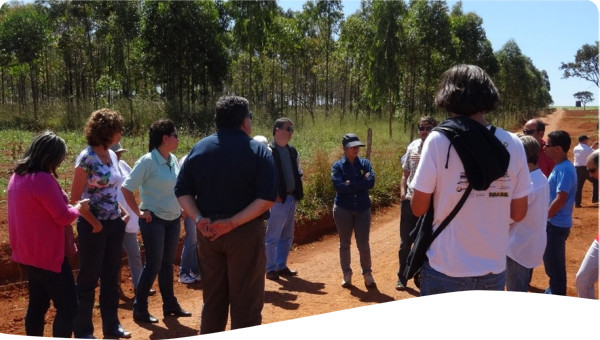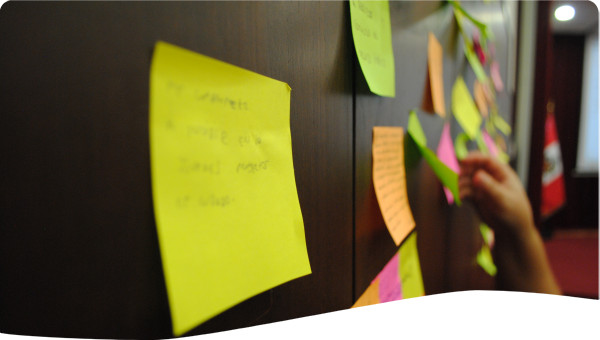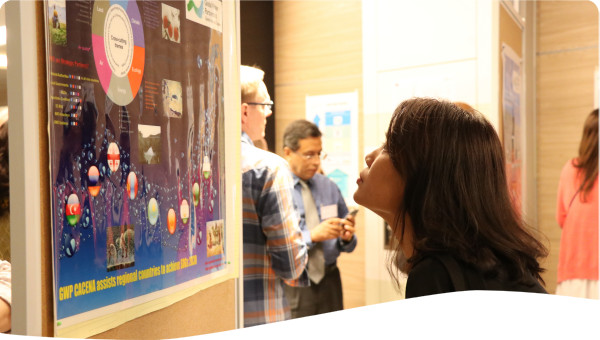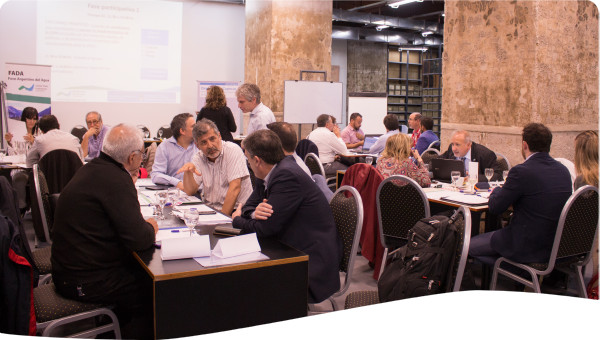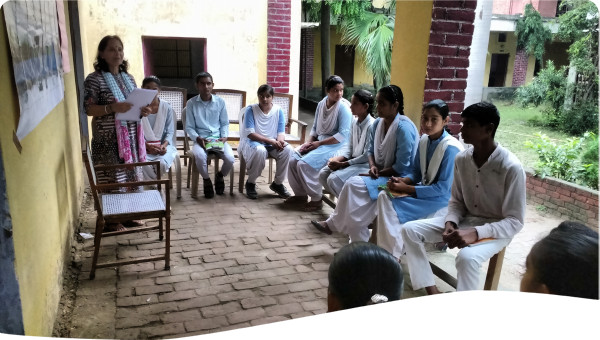Cameroon is gifted with lot of surface and groundwater but access to safe water is a challenge. Lot of initiatives are conducted by government and youth but the inclusivity seems low. Youth have a huge potential and a big role to play in a constantly changing environment. For their meaningful contribution to local, national and global goals, they need support, mentorship and a stand for their voice to be heard and for them to connect with seniors, knowledge and opportunities. Our contribution is to show a constructive path towards structuring a national youth network working in synergy and dialoguing where they can have a voice and showcase what they do for water and climate security.
Cameroon is gifted with abundant water resources but suffers from climate and water extremes characterized by frequent floods in urban areas (Yaounde, Douala, Buea, Maroua), hotter climate in urban and rural areas, season shifts (both rainy and dry) as well as sea level rise and salinization of coastal freshwater (Douala, Limbe, Kribi). Certain localities situated in the sahelian zone often face drought and quantitative water scarcity (Kaele, Kousseri).
With current changes, it has become difficult to earmark seasons or prevent droughts/floods due to lack of data and ground research. Tackling hydro climatic risks in Cameroon remain at the level of policies, strategies, emergency response, and rarely on preparedness. As a consequence tangible results at local levels are scarce and youths are more and more vulnerable and scared about the possibility for them to be resilient to global environmental changes. Few projects involve youth as actors; despite thousands are trained and could bring innovative solutions, provided they are sensitized on the challenges, given practical skills and mentored.
With changing climate trends and probability, as recommended by Conference of Youths 11 and 12, as well as World Water Forum 2018 and 2021, there is need for local specific and participatory adaptation and preparedness. To achieve this, it was crucial to shift from a structural and institutional response to field oriented sustainable green and non-structural solutions strengthening youths and communities for them to develop adequate knowledge based solutions.
Throughout the work done with youth we discovered that they have a huge potential to contribute to innovative solutions in hydroclimatic risk management, and their current contribution lack attention and voice. That’s why this initiative started by enhancing their engagement in flood/drought risks communication, research, prevention and management. Despite their will to be part of the solution and all efforts to lead their pears it was also found that they were limited by several factors among which: dispersion of energy, low use of internal high quality resources, and insufficient knowledge of what others do and how others can help.
Moreover, sometimes they lack support from surrounding decision systems and their voice is not as loud as required to influence policy and decision-makers, while they have a voice and some specific experience or ideas to share, as well as a significant field support to provide in order to shape their future.
As Cameroon has a score of 40 for the 2020-21 round of data collection for SDG 6.5.1. indicator, that is a medium-low status of IWRM implementation for all four pillars (UNEP, 2021) with very low level of public participation and low gender inclusion in IWRM plans and laws, we engaged to support improved IWRM implementation with strong participation of youth towards water security and climate resilience.
Our approach is based on building capacity, partnership and synergistic intervention among youth and awareness raising while connecting them to opportunities. This ongoing activity started in 2017 with several steps:
On November 3-4, 2017, a training workshop on flood and drought risk prediction and management was held in Yaoundé (Cameroon), organized by the Water For Life Cameroon with the support from Global Water Partnership, UNESCO Central Africa Multi sector Bureau, World Meteorology Organization and Water Youth Network.. This workshop as part of EYD2R project helped youth to clearly understand concepts around hydroclimatic risks and challenges associated.
Then from May 30th to June 1st 2018 a workshop on hydroclimatic project writing and financing was organized at Global Water Partnership Central Africa (GWP CAf) with support from UNESCO Central Africa Multi sector Bureau, Water Youth Network and GWP/WMO Associated Programme on Flood Management. This was in line with «Enhancing Youth Participation to flood and drought disaster risk reduction in developing countries (EYD2R)» action plan. This workshop's goals were to identify project ideas as well as train youth in project planning and management. It was the occasion to highlight tips on climate finance and mechanisms. Participative, gender and emergency prevention/response approaches were also exposed. 10 specialists from UN Women Cameroon, UNESCO Central Africa Multi Sector Bureau, GWP CAF, Red Cross, JAD, J2D-Afrique, Water For Life Cameroon, Water Youth Network, Cameroon Civil Protection Agency, and local councils shared their knowledge through oral presentations and practical sessions.
Following those capacity building session, “We4future initiative” to link up youth organizations working in climate, environment and water fields was conducted with support from Konrad Adenauer Foundation. It aimed at mobilizing youths, linking them up across regions and help them to build synergies. This was done through regional meetings across the country during which Youth organization discussed about what they do, their constraints and existing potential. The census and meetings held between July and December 2019 helped to identify 156 youth organizations and crucial need for a communication platform and dialogue with decision makers to give youths a voice and fill knowledge gaps.
Between July and November 2020 with support from UNESCO Central Africa Bureau following a joint advocacy with RECOJAC, technical and financial support was given to CODAS Caritas for a pilot project on “improvement of access to potable water in rural area through Moringa coagulation and filtration” as a contribution to solutions for water security in the Mayo Danay division..
Between July and October 2021 06 Youths organizations were engaged to identify and help to register in an online database (https://www.expertiseaucameroun.org/ ) experts in the water sector from public, private, CSOs institution throughout the country. 502 profiles were registered and put online with support from UNESCO Central Africa Multi sector Bureau. This was the opportunity for these 16 youths to connect with national water experts from public, private, CSO and NGO institutions all through the country.
For youth to understand government strategy on climate change and dialogue with them on actual and potential contribution to that response strategy, a workshop was held on April 21st and 22nd 2022 with support from the Friedrich Erbert Foundation. 38 youth organizations from all regions, 03 ministries (agriculture, transport and environment) and 03 key speakers among whom the National Focal Point of United Nation climate Change Convention were part of the discussion. This was the occasion to highlight government initiatives, national commitments, planned government project for climate adaptation and resilience, but also to showcase youth contribution as well as constraints and opportunities for collaboration.
The detailed outcomes of the project are as follows:
- 30 youths trained on hydroclimatic risk assessment and management as well as project development;
- 4 rapid hydro climatic risks assessments conducted in neighborhoods of 4 councils;
- 1 whatsapp community of 142 delegates established for information, updates, knowledge and opportunities sharing;
- 1 database of 156 youth organizations in Cameroon organized per region and field of expertise;
- an online platform of water experts in Cameroon created with 502 profiles from public, private, CSO, NGO and academic institutions;
- 2 scientific articles published on water security in Africa;
- 10 network meetings organized;
- 3 regional networks created to boost local synergy (Far north, North West, South West, West);
- 1 national dialogue conducted among youth CSOs and decision makers in Cameroon;
- contributed to assessment of implementation of SDG 6.5.1 and 6.5.2 in Cameroon;
- included youth as members of technical committee of National Intergovernmental Hydrological Program;
- 3 Universities involved in the initiative (University of Yaoundé 1, University of Dschang, University of Maroua) and 4 engineering schools (ENSTP, FASA, FMBEE, ENSPM) engaged on hydroclimatic research;
- 8 international organizations, foundations or networks engaged (GWP, UNESCO, AFPM, WMO Friedrich Erbert Foundation, Konrad Adenauer Foundation, WMO, Water Youth network, RECOJAC);
- 1 dialogue platform established between youth CSO and decision makers.
Organizations mobilized are a huge force for sensitization on “climate change citizen action".
Recording and monitoring deliverables from youth workers can significantly contribute to Cameroon NDC targets.
There is usually wrong perception of the real potential of youth, they can do even more than we think.
Local synergy of resources and expertise could reduce cost of operation.
 Case studies
Case studies